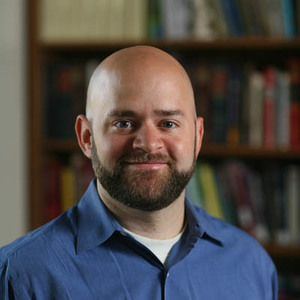O. Carter Snead

William P. and Hazel B. White Director of the Center for Ethics and Culture, Professor of Law, The Law School
Phone: 574-631-8259
Office: 2141 Eck Hall of Law/ 424 Geddes Hall
A significant portion of his research and teaching centers around the ethical, legal, and social questions associated with stem cell research and related questions (such as human cloning). Professor Snead has published numerous articles, both for scholarly and general audiences on these matters including: The Pedagogical Significance of the Bush Stem Cell Policy: A Window into the Nature of Bioethical Regulation in the U.S., 5 YALE J. HEALTH POL’Y, L. & ETHICS 491 (2005); Preparing the Groundwork for a Responsible Debate on Stem Cell Research and Cloning, 39 NEWENG. L. REV. 701 (2005) (Keynote address for 2004 Symposium, “Bioethics: The Current Stem Cell Research Debate”); A Comparative Analysis of E.U. and U.S. Funding Policies for Embryonic Stem Cell Research: Details, Aims, and Effects, 4 QUADERNI COSTITUZIONALI 834 (2007); Bioethics and Self-Governance: The Lessons of the Universal Declaration on Bioethics and Human Rights, JOURNAL OF MEDICINE AND PHILOSOPHY, 34: 204-222, 2009 doi 10.1093/jmp/jhp024; Public Bioethics and the Bush Presidency, 32 HARV. J. OF L. & PUB. POL. 867 (2009); and Public Bioethics, Science, and the Problem of Integration, _ U.C. DAVIS LAW REVIEW _ (forthcoming 2010).
Aside from teaching and research, his professional service has also focused heavily on the question of stem cell research. Prior to joining the faculty of Notre Dame, he served as General Counsel to the President’s Council on Bioethics (a White House advisory body), where he advised the Chairman and Members on the legal and public policy dimensions of stem cell research and human cloning. From 2004 to 2005, he led the U.S. government delegation to the United Nations Educational, Science, and Culture Organization (UNESCO) in the negotiation of the Universal Declaration on Bioethics and Human Rights (adopted in October 2005).
Prof. Snead recently concluded his service as Permanent Observer for the U.S. government at the Council of Europe’s Steering Committee on Bioethics (CDBI), where he assisted in the development of international instruments and standards relating to stem cell research, among other things.
Currently, he serves as a member of UNESCO’s International Bioethics Committee, a 36-member body of independent experts who advise member states on bioethical questions. It is the only bioethics committee in the world with a global mandate.
He serves as Chairman for the Stem Cell Research/Bioethics Working Group of the New Federal Initiatives Project for the Federalist Society. Finally, he is a Fellow of the Ethics and Public Policy Center in Washington, DC.
Would you like to support Prof. Snead’s Research?